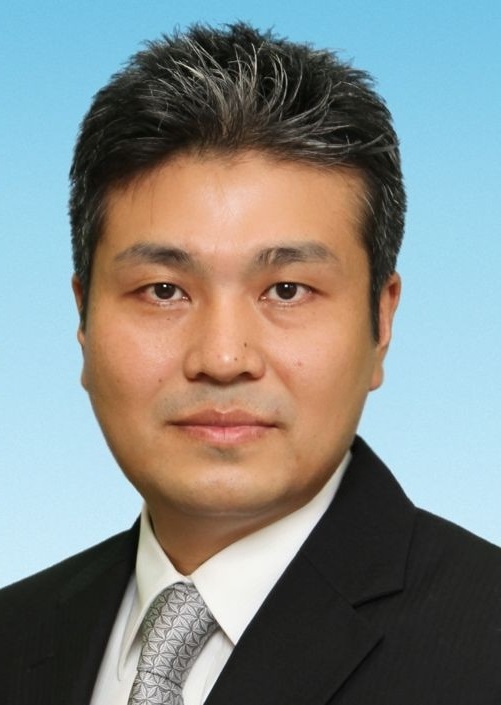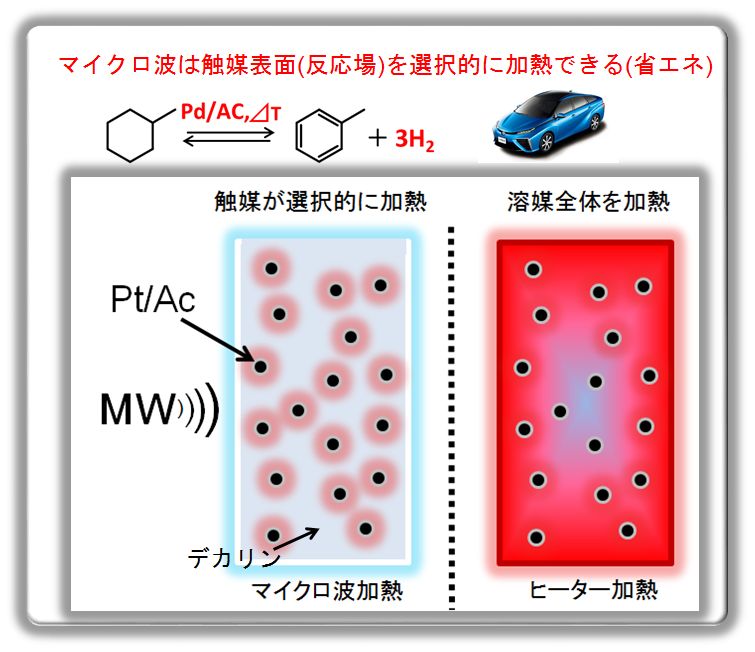2023.08.02

Faculty of Science and Technology / Department of Materials and Life Sciences
Horikoshi Satoshi Professor
Reference:http://pweb.cc.sophia.ac.jp/horikosi/
Given its gaseous properties, hydrogen energy is difficult to store or transport; and therefore, it needs to be liquefied. Consideration of various liquefaction methods (high-pressure cooling, hydrogen storage alloys, organic hydride) has revealed that each technology embraces advantages and disadvantages. Organic hydride technology can be used in existing petroleum infrastructure, as liquefaction occurs by adding hydrogen to organic solvents, and hydrogen can be extracted using a dehydrogenation reaction, as required. However, dehydrogenation reactions require precious metal catalysts and heating operations; and therefore, catalyst costs and heating energy costs can be challenging. This technology has:
(1) Succeeded in extracting hydrogen with a non-precious metal catalyst by using a microwave carbon catalyst;
(2) Demonstrated that by selectively heating catalysts using microwaves, the amount of catalysts required to extract hydrogen will be reduced to less than 1/25 of conventionally required amounts, and that the energy required for heating can be saved by 1/8; and
(3) Can be used in devices smaller than conventional devices.

Results to present have revealed that this device is useful as a small or medium-sized hydrogen generator.
Laboratory experiments have been completed and the technology has entered the upscaling stage.
We seek private companies that will study energy savings and cost reduction levels accompanying the upscaling as well as perform demonstrative experiments.